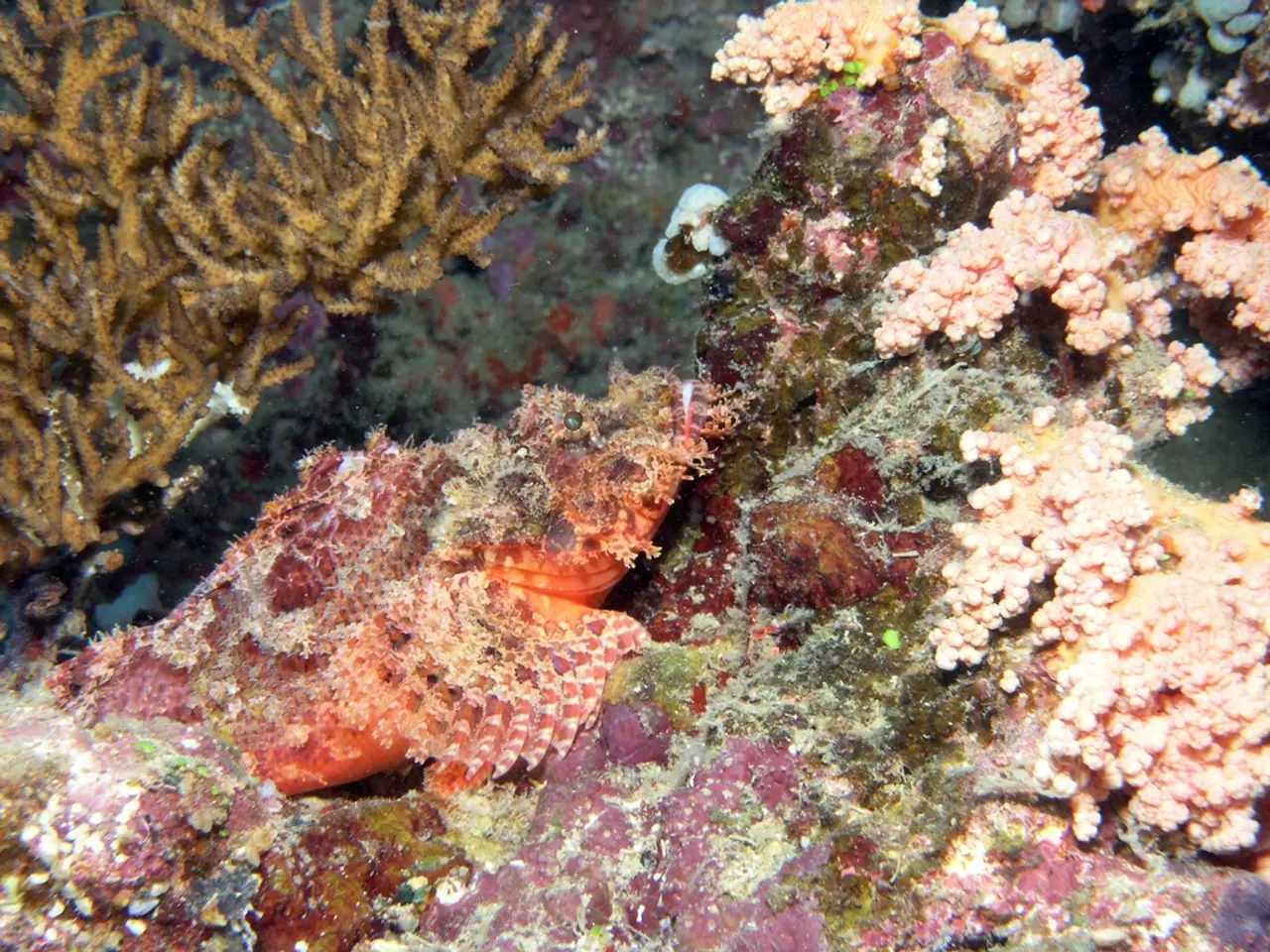China boosts marine research efforts in Nice
In a significant move towards ocean sustainability, China has positioned itself as a proactive supporter at the 2025 UN Ocean Conference. Vice President Han Zheng delivered a speech emphasizing China's commitment to advancing marine science, high seas protection, and multilateral cooperation.
As part of this commitment, China announced plans to launch over 100 bilateral and multilateral cooperation programs aimed at training 5,000 individuals from developing countries in sustainable marine practices over the next three years. This initiative aligns with the broader international effort to accelerate action on SDG 14, the UN development goal tied to ocean sustainability.
In terms of high seas protection, China has expressed its intention to ratify the High Seas Treaty, which aims to regulate conservation measures such as environmental impact assessments, sharing genetic resources, and establishing protected areas in international waters. Although China has not yet ratified the treaty, this was its first public announcement about the process. Ratification is complex, involving multiple governmental departments, but China's progress is viewed as crucial for the treaty to enter into force. The treaty requires 60 countries' ratifications, with 50 already done by mid-2025, and China's ratification would bring the treaty closer to activation by January 2026.
China's approach at the conference clearly favoured multilateralism, stressing cooperation with many countries, especially developing states and island nations, to meet UN development goals tied to ocean sustainability. This stance was evident in China's pledge to provide 5,000 placements for individuals from developing countries to be trained in sustainable marine practices.
Science was a significant focus of China's participation in the UN Ocean Conference. The China Global Ocean Fusion Dataset 1.0, a global ocean climate dataset, was unveiled at the conference. China's research fleet and scientific capacity are also receiving attention for their potential contribution to high sea protection.
Moreover, China has shown a willingness to engage with international NGOs like WWF and Greenpeace on the issue of distant-water fisheries, recognizing the value of communication in ensuring sustainability. Guo Hongyu, deputy director of the Beijing-based environmental think-tank Greenovation Hub, championed scientific exchanges at a UNOC side event, emphasizing the importance of international cooperation of scientists to successfully create protected areas in international waters.
China's presence at the conference contrasted with the United States, which only sent observers after denouncing the UN Sustainable Development Goals and not participating in the UNOC. However, China remains open to suggestions on the issue of distant-water fisheries, and is actively contributing to the global agenda of sustainable ocean development. According to Wang Songlin, the founder and president of the Qingdao Marine Conservation Society, China will play an increasingly pivotal role in this global effort.
In addition, China launched Seamount Digital Intelligent Systems, a data platform for deep-sea discoveries, at the UNOC. Vice President Han Zheng also called for "true multilateralism" and the joint observation of international rules on the ocean to achieve SDG14. Zhang, a marine expert, sees an improvement in China's tackling of illegal, unreported, and unregulated fishing and is optimistic about more progress, especially since China joined the Port State Measures Agreement.
In summary, China's participation at the 2025 UN Ocean Conference signals a strong commitment to marine science, high seas protection, and multilateral cooperation. With concrete plans underway to ratify the High Seas Treaty domestically in the near future, China is poised to play a significant role in the global effort towards sustainable ocean development.
- China's announced plans to train 5,000 individuals from developing countries align with SDG 14, the UN development goal focused on ocean sustainability.
- The High Seas Treaty, which aims to regulate conservation measures in international waters, requires 60 countries' ratifications, with China's ratification bringing the treaty closer to activation by January 2026.
- China's approach at the conference emphasized multilateralism, with a focus on cooperation with developing states to meet UN development goals related to ocean sustainability.
- Science was a significant focus of China's participation at the conference, with the unveiling of the China Global Ocean Fusion Dataset 1.0 and attention given to China's research fleet and scientific capacity.
- China has shown a willingness to engage with international NGOs like WWF and Greenpeace on the issue of distant-water fisheries, recognizing the value of communication in ensuring sustainability.
- In addition to its commitment to ocean sustainability, China launched Seamount Digital Intelligent Systems, a data platform for deep-sea discoveries, at the UNOC.
- China's presence at the conference contrasted with the United States, which only sent observers after denouncing the UN Sustainable Development Goals.
- The issue of distant-water fisheries is one area where China remains open to suggestions, and the country is currently contributing to the global agenda of sustainable ocean development.
- With a strong commitment to marine science, high seas protection, and multilateral cooperation, China is poised to play a significant role in the global effort towards sustainable ocean development, according to marine expert Zhang.




